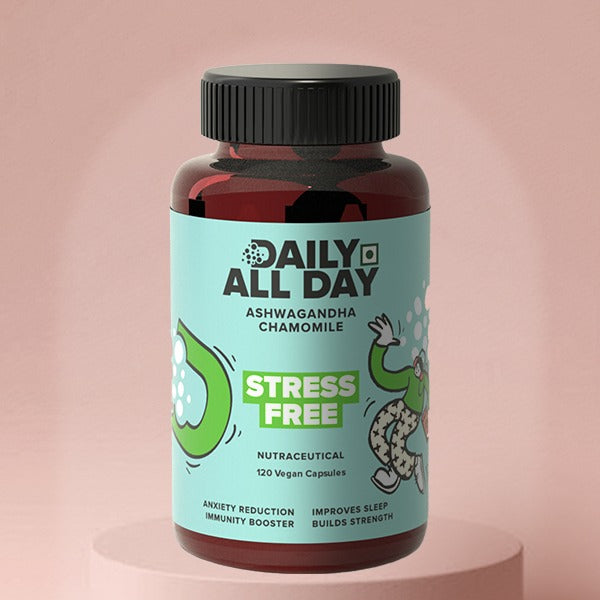Turmeric, also called “yellow root,” has been in use for centuries for its astounding health benefits. Along with its many properties, its anti-inflammatory qualities distinguish it, making it a mainstream choice for people seeking holistic solutions to chronic inflammation. Let’s dive in to explore the causes of inflammation and how turmeric can help.
What is Turmeric?
Turmeric, commonly known as Haldi or Haridra, is a medicinal plant extensively used in Ayurveda, Siddha, and Unani systems of medicine. The active compound in turmeric is curcumin, which is a powerful antioxidant that scavenges free radicals from the body, reduces oxidative damage, and improves cognitive functions.
It is a powerful anti-inflammatory agent used in various inflammatory diseases such as rheumatoid arthritis, osteoarthritis, and injuries. In fact, rheumatoid arthritis and treatment options often include curcumin due to its ability to calm inflammation.
Understanding Inflammation
Inflammation is a natural immune system response to protect the body against infections and injuries. However, when inflammation becomes chronic, it can lead to diseases like arthritis and rheumatoid arthritis, diabetes, and even heart disease.
Some major causes of chronic inflammation include:
- Poor Diet- High sugar and unhealthy fats promote inflammation.
- Inactive Lifestyle- Lack of movement can increase inflammation.
- Stress- Triggers inflammatory responses.
- Environmental Factors- Pollution and toxins contribute to inflammation.
If you're experiencing pain in the back of the head, joint stiffness, or fatigue, these could be signs and symptoms of rheumatoid arthritis or other inflammatory conditions.
The Science Behind Turmeric
Curcumin, the active ingredient in turmeric, has been shown to reduce post-operative inflammation. It supports liver function, purifies the blood, and lowers LDL cholesterol. More importantly, it improves inflammatory pathways in the body by:
- Restraining Inflammatory Molecules- Curcumin blocks cytokines and enzymes that trigger inflammation.
- Antioxidant Properties- It neutralizes free radicals and reduces oxidative stress.
This makes turmeric a key component of an anti-inflammatory diet, and it often appears in lists of top 20 anti-inflammatory foods.
Turmeric’s Anti-Inflammatory Benefits
Turmeric has long been used in traditional medicine for its healing power. Research shows that:

- Rheumatoid Arthritis Relief- Curcumin significantly reduces joint pain and improves mobility in rheumatoid arthritis disease.
- Joint Health Support- It is often found in joint support supplements due to its inflammation-reducing capacity.
- Heart and Gut Health- Curcumin supports cardiovascular health and soothes gut inflammation.
- Metabolic Syndrome- It helps improve insulin sensitivity, reduce blood pressure, and curb oxidative stress.
- Cognitive Health- May reduce neuroinflammation and support memory and brain function.
Adding turmeric to your routine may complement your existing rheumatoid arthritis treatment, especially when paired with gentle back exercises at home or lower back exercises to maintain joint flexibility.
How to Use Turmeric Effectively
There are several ways to incorporate turmeric and its benefits into your daily routine:
- Golden Milk- Mix turmeric with warm milk, black pepper, and honey.
- Meals- Add it to soups, dals, and curries.
- Supplements- Choose a curcumin supplement with black pepper extract (piperine) to improve bioavailability.
High-quality dietary supplements like those from Daily All Day offer curated formulas that blend turmeric with other vitamins for bones and natural enhancers.
Daily All Day for Anti-Inflammatory Wellness
At Daily All Day, we combine the wisdom of Ayurveda with modern science to bring you potent health solutions. Our turmeric-based formulations are ideal for those seeking natural options to reduce inflammation in the body, manage arthritis and rheumatoid arthritis, and boost overall wellness.
Conclusion
Turmeric and curcumin offer impressive benefits through their antioxidant and anti-inflammatory effects. From easing rheumatoid arthritis symptoms to supporting metabolic and cognitive health, this golden spice has much to offer. Whether added to food or taken as a supplement, turmeric is one of the best foods that reduce inflammation. Combined with an anti-inflammatory diet and movement, turmeric can become your ally in health and healing.
Frequently Asked Questions (FAQs)
1. What is Curcumin?
Curcumin is the active compound in turmeric known for its powerful antioxidant and anti-inflammatory effects.
2. Can turmeric help with rheumatoid arthritis?
Yes. Studies suggest turmeric can reduce inflammation and joint pain in people with rheumatoid arthritis disease.
3. Are there any side effects of turmeric?
Turmeric is safe in moderate amounts, but high doses of supplements may cause discomfort. Consult a healthcare professional before starting.
4. How should I consume turmeric for health benefits?
You can add turmeric to food or take it as a curcumin supplement, ideally with black pepper for better absorption.
5. What foods help decrease inflammation?
Some foods that decrease inflammation include leafy greens, berries, nuts, fatty fish, and turmeric.



















